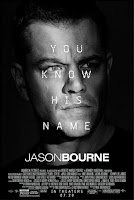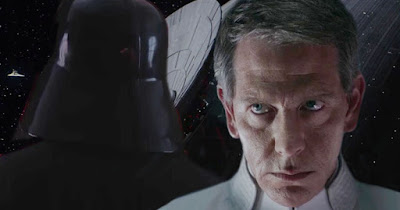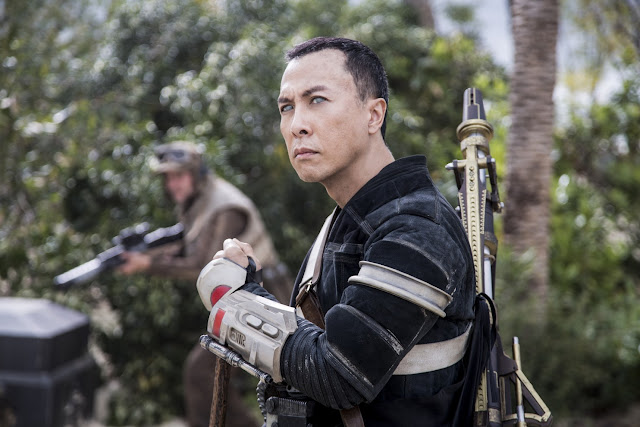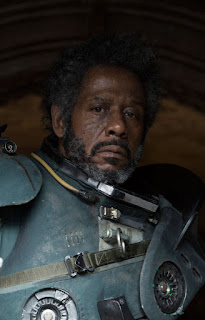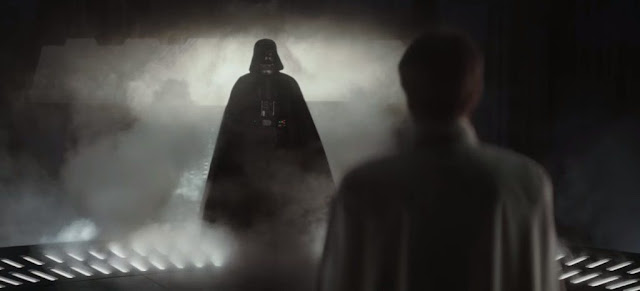2016: A Year of Movies in Review
January. A month synonymous with resolutions and new beginnings. Sadly, not for the movie industry, which continues to revel in an excess of sequels, such as...Kung Fu Panda 3. The original concept behind Kung Fu Panda was a classic underdog story featuring the chubby and unlikely hero who rises to fulfill his destiny. Kung Fu Panda 3 leaves those inspired beginnings behind to pursue an excuse to incorporate baby pandas, and wedge in undertones about family, fatherhood, and identity. While these features lend some tender moments, it's all lost in between the odd spirituality and overused jokes. A solid one-timer.
Outside of the theater however, Netflix proved itself to be an able producer of decent entertainment, not just a distributor, when it presented...
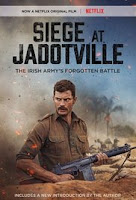 The Siege of Jadotville. If you've never heard of Jadotville, or that there was a siege there, you're not
The Siege of Jadotville. If you've never heard of Jadotville, or that there was a siege there, you're notalone. This historical drama set in 1961 delivers a gripping tale of a little-known Irish battalion holding out against a siege of 3,000 Congolese troops led by French and Belgian mercenaries. With solid performances throughout, this intense bit of war-like drama delivers a straightforward but compelling tale of courage and resourcefulness against insurmountable odds and despicable politics. By no means the best war-like movie you'll ever see, but worth the watching all the same.
February might have produced some critical darlings and audience favorites, but I didn't bother with most of them. One of the few contributions I did make time for was another Netflix contribution, namely...
Crouching Tiger, Hidden Dragon: Sword of Destiny. Unlike its predecessor, Sword of Destiny is filmed in English, and while I don't mind subtitles, I'm thankful this wasn't dubbed. Seeing Crouching Tiger, Hidden Dragon isn't particularly essential to understanding Sword of Destiny, and I'm still on the fence as to whether or not Sword of Destiny detracts anything from its predecessor. To its credit, it does not answer how Crouching Tiger, Hidden Dragon ended, but picks up much later, only lightly referencing the events of the previous movie. Michelle Yeoh returns as the veteran swordswoman, and another character "returns", played by seasoned martial arts star Donnie Yen. All in all Sword of Destiny is entertaining and engaging, but carries a different tone than its predecessor. It's lighter, less haunting, and more hopeful altogether.
When March rolled around, the first of the supposed blockbusters came with it, bringing in...
Batman v Superman: Dawn of Justice. It seems that audiences were divided on this one, but I've got one word for it: ugh. We see Bruce's parents murdered for the millionth time onscreen. Sequences of surreality are not differentiated from reality, which brings several of the artsier moments into the realm of absurdity; for example, Bruce ascending on the updraft of swirling bats. Characters such as Lois Lane and Diana Prince are not so much characters as plot devices. Lex Luthor is so maddeningly over the top that even as an unhinged maniac, he more resembles a bad Joker imitation from a YouTube star. The entire movie is weighed down in its own seriousness, trying with every line of self-conscious dialogue to be moody film noir, but is instead flat and lifeless. Every time Clark appears as Superman, he strides in a dramatic broad-shouldered hero walk, with his cape flurrying behind him in slow motion. EVERY time.
At least March gave us some comic levity with....
Zootopia. Animation has never been a stranger to aiming its humor at the parents sitting alongside the oblivious children who are just there to see the "cute bunny", but Zootopia goes a step further, taking inspiration from movies like L.A. Confidential and The Godfather. As such, Zootopia gets dark at times, but bounces back on its plucky animated haunches and delivers a fun sort of light entertainment, provided you can overlook what at times feels like a wandering agenda.
The closer we got to the summer, the closer we got to the movies everyone really wanted to see. Meanwhile, we had April, which brought us...
The Jungle Book. I actually did a full review on this one, which you can read here. But the short of it is, this was a fun movie that was faithful to the classic animated version, while bringing something new to the table. The life-like CGI made the animal characters more connectable than would have been possible with actual animals, but also maintains an element of realism that keeps this adventure moving.
And with the month of May comes the summer season. Summer season means franchise time and big movies! And launching the season is...
Captain America: Civil War. My only excuse for not fully reviewing this one in its own post is that I didn't see it until a little later. Civil War is basically everything that Avengers: Age of Ultron wanted to be with its inner-team conflicts, government interference, good intentions with poor outcomes, etc. Winter Soldier ranks among the highest of Marvel movies, and Civil War is a worthy follow-up in almost every way. Although it is a part of the Captain America franchise, Civil War is every bit an ensemble movie, adequately exploring the motives and intentions of each character without going into heavy exposition. Civil War does such a good job of exploring each side of the conflict, that it's a little hard as the viewer to take a firm side; it's easy to see why the team is divided over their new paths. The strengths of the movie echo what Winter Soldier did right, which was in focusing more on the plot and character development, and using big action sequences with tasteful restraint.
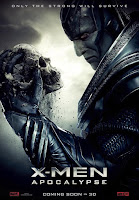 X-Men: Apocalypse. Well, after X-Men: Days of Future Past, the X-men franchise seems unleashed to do whatever it wants, which has its pros and cons. Apocalypse presents the single most stirring piece of Magneto's past that we've ever seen, and Michael Fassbender proves again that he is capable of bringing an intensity and range to the character that makes Magneto more sympathetic than ever before. Elsewhere, previously introduced characters like Xavier, Hank, and Mystique return (with an obligatory Logan cameo), but mostly just carry star power to usher in the new young ones. Speaking of the young ones, it's somewhat enjoyable to see the early years of Cyclops, Jean, and Storm, but ultimately it all feels like a big CGI-fest of "look what we can do!" Apocalypse as a villain is more preposterous than frightening, serving as another vehicle for CGI showmanship. Not bad, not great.
X-Men: Apocalypse. Well, after X-Men: Days of Future Past, the X-men franchise seems unleashed to do whatever it wants, which has its pros and cons. Apocalypse presents the single most stirring piece of Magneto's past that we've ever seen, and Michael Fassbender proves again that he is capable of bringing an intensity and range to the character that makes Magneto more sympathetic than ever before. Elsewhere, previously introduced characters like Xavier, Hank, and Mystique return (with an obligatory Logan cameo), but mostly just carry star power to usher in the new young ones. Speaking of the young ones, it's somewhat enjoyable to see the early years of Cyclops, Jean, and Storm, but ultimately it all feels like a big CGI-fest of "look what we can do!" Apocalypse as a villain is more preposterous than frightening, serving as another vehicle for CGI showmanship. Not bad, not great.Continuing the trend of big sequels, June brought the highly anticipated...
Finding Dory. A Finding Nemo sequel has seemed fairly inevitable for over ten years now, so Pixar really ought to be commended for not using the Nemo hype to immediately throw us a half-baked fish story. A full review of Finding Dory is available here, but the jist of it is that Finding Dory isn't a bad sequel, but it does feel a little recycled in many ways. I'm not sure how that could have really been avoided though. As I said in my full review, Finding Dory is a worthy follow-up to Finding Nemo, being effervescent and full of heart, but also putting a few nicks on that heart. Oh Pixar, how you love to play with our hearts.
For me, one of the best movies of the summer came in July, because it brought me...
Star Trek Beyond. Naturally I have a much more in-depth review, but suffice to say that Beyond is "perhaps not the highest point in the trilogy, nor for sci-fi in general, but it's still a heck of a lot of fun" (quoting myself because I can). The revived Star Trek movies abound in witty banter and comical scenarios, allowing the freedom to reinvent the iconic characters while also paying them homage. Even the self-serious Spock is liberated enough to not treat his every word as holy, and ultimately we get a movie that's well-scripted and fun in its sci-fi peril, but thoughtful in its execution and storytelling.
Jason Bourne also featured in July, but I personally think it's time for Mr. Bourne to retire. He's found his identity, proved his supremacy, cast his ultimatum, and now it feels like the brand is on life-support. The intrigue and mystery have worn off, and unfortunately neither the franchise nor Jason himself have the charisma and variety to continue in the manner of, say, Mission Impossible. Another chase through a European city isn't even fan service anymore-- it's just old. Revelations in this most recent installment are predictable, and other plot twists are repetitive. Jason Bourne's end lands us right back where it began-- with Jason hiding in shadows and unable to trust anyone. Time to say goodbye.
August brought me nothing from the theater, Netflix, or Redbox. The month was a dud for entertainment, and September wasn't much better. October produced only...
Inferno. There's some sort of unwritten rule in Hollywood that everything must happen in trios, and so it happens with Inferno. Whether Inferno is prequel or sequel to The DaVinci Code I don't know, but it is, like the underrated Angels & Demons, a continuation of the strange adventures of Dr. Robert Langdon. Tom Hanks has never been an action hero, which is just as well because Robert Langdon was never meant to be Indiana Jones, despite his entanglement with religious relics and conspiracies. Inferno self-consciously ticks boxes as it goes, repetitively incorporating features of the previous two movies, while still trying to be progressive in its plot. Ultimately it ends up a decent enough bit of intrigue, but once you understand the stakes, there's very little question as to whether or not Langdon will succeed so much as a question of how.
Going into the Fall movie season, November was the bearer of my personal favorites of the year, starting with...
Hacksaw Ridge. I had planned to write a full review of this charming and inspiring war movie, but had a difficult time getting the ball rolling on it. War movies are probably the hardest to critique because there is a vast well of emotion that surrounds each story, whether portrayed in some unique way or with gritty passion. In many ways, Hacksaw Ridge echoes one of director Mel Gibson's earlier masterpieces, Braveheart. While the story centers securely on war and the brutality of it, the individual is firmly established through both sweet and harrowing moments. Desmond T. Doss, the hero of Hacksaw Ridge, is in every way the unlikeliest of heroes except in his determined resolve to serve as far as his convictions will allow. But as a conscientious objector, his convictions prohibit him from killing another person. Predictably, his firmness on this issue will garner persecution from fellow soldiers and superior officers, but he finds a way in the heat of battle to serve his country and his fellow men while never swaying on this resolve. Andrew Garfield as Doss shines as a lovable country boy turned war-hero, while Hugo Weaving's portrayal of Doss's father will be one of the most underrated supporting roles of the year. While Doss isn't the strapping image of a heroic war figure, he's an inspiring figure all the same, and it's both heart-pounding and gut-wrenching to see him pulling barely-alive men to the edge of the cliff, only to breathe "Lord, give me one more" when each man safely reaches the bottom.
Doctor Strange. When promos for Doctor Strange began hitting, I was moderately interested. I didn't know much about the story or the character's impact on the Marvel universe, but I like Marvel, and I like Benedict Cumberbatch, so it seemed like it would be a safe bet that I'd enjoy this movie. Enjoy might be a mild understatement, and I now struggle with where to place Doctor Strange in Marvel's top five best movies. With snappy dialogue, kaleidoscopic visuals, and solid casting, Doctor Strange is a glorious origin story that sets a high bar for its own future in all the best ways.
Fantastic Beasts and Where to Find Them. At one point in the history of blogging, I wondered if I should rename my blog and do only pieces on Harry Potter. With that kind of history of fandom, it's probably not surprising that Fantastic Beasts should be my most anticipated movie of the year. It's a return to the world of Harry Potter, long before Harry Potter, in a different era and different country. The results were absolutely mesmerizing, bringing the audience back to the magical world we've missed so much, but also showing us a whole new one with an entirely new kind of hero. Who is Newt? No one quite as important as the Boy Who Lived or He Who Must Not Be Named, but a delightful everyman tangled up in grand adventures.
The year wrapped up in December with one of the biggest brand names in cinema,
Rogue One: A Star Wars Story. As a fairly big fan of Star Wars, I went into Rogue One with high expectations. Rogue One was far from terrible, but missed several opportunities for character development or emotional engagement. The lack of character development turned Rogue One into a forced plot vehicle that felt more like a checklist than a flowing storyline, with all its features serving the already-known endgame.
Until I began working on this particular post, it hadn't necessarily occurred to me whether or not 2016 was a good year in movies, but looking at this list, I'd say it had some more than decent contributions, with November being my favorite month. My 2016 list is made up of mostly sequels and franchise pieces, and 2017 will probably be similar, with a few outliers. While I'm highly anticipating the continuation of various installments in the Marvel Cinematic Universe as well as Star Wars Episode VIII, I also harbor hopes that some franchises will finally end in 2017. If the year brings forth nothing else that is good and enjoyable, I will at least be spared from having to sit through another Transformers or Pirates of the Caribbean trailer, should these movies fail in the way that I maliciously hope for. But, I've got an entire year before I can look back on the whole and see how we did in 2017. In the meantime, I bid adieu to 2016, with special gratitude for the high points in entertainment this year.








